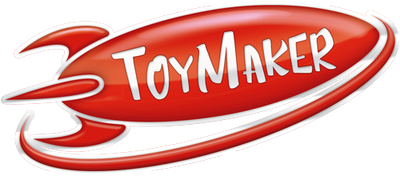Speed and Thrill: Teaching Kids the Basics of Physics Through RC Remote Control Cars
Introduction
The process of learning can be significantly enhanced when it's fun and engaging. This is especially true for children, who naturally learn better when they are actively involved in the process. Using RC remote control cars is a novel and effective way to teach physics to kids. These miniature vehicles not only capture their attention but also offer practical demonstrations of various physical concepts such as motion, energy, and forces. In this blog, we delve into how racing RC cars can be used as educational tools to introduce the foundational principles of physics in an enjoyable manner.
Teaching Physics through Motion with RC Remote Control Cars
Understanding Motion and Speed
RC remote control cars provide a practical, visual tool to teach the concepts of speed and motion. When kids control these cars, they can directly see the effect of speed changes on the car’s movement. To make the learning process more comprehensive, parents or educators can set up experiments where children change the speed settings and observe the varying responses of the car. For instance, noting how quickly a car accelerates from a standstill or measures how long it takes to stop from different speeds can illustrate basic principles of acceleration and deceleration.

Real-World Applications of Physics Concepts
These experiments can extend to discussions about velocity and vector quantities. By using racing RC cars, kids can learn to differentiate between speed (a scalar quantity) and velocity (which includes direction), offering a clear, understandable example of these fundamental concepts in physics.
Exploring Forces with Racing RC Cars
Force, Friction, and Traction
Racing RC cars are excellent for demonstrating the forces involved in motion. When a car turns, stops, or starts, it shows how forces are acting on it. Discussing the role of friction between the car’s tires and the surface can lead to experiments on different terrains, such as tile, carpet, or asphalt, to see how traction affects movement. This hands-on approach helps kids understand how friction is a force that opposes motion, and why it is essential for the car to move or stop.
Momentum and Collisions
Further, the concept of momentum can be explored by observing collisions between two RC cars. Such experiments can not only be fun but also educational, as they show conservation of momentum and energy in a very tangible way.
Energy Transformation in RC Remote Control Cars
Types of Energy and Transformation
RC remote control cars operate using electrical energy, which is stored in batteries. This electrical energy is converted into mechanical energy, which powers the wheels of the car. Educators can discuss different forms of energy and how energy transformation is a fundamental aspect of all mechanical systems. Additionally, comparing how different battery types affect the car's performance can lead into discussions about energy efficiency and storage.

Benefits of Using RC Cars in Educational Settings
- Interactive Learning: These cars provide a hands-on learning experience that is both fun and educational.
- Real-World Application: By linking theoretical knowledge with practical application, children can see the relevance of physics in everyday objects and scenarios.
- Stimulates Curiosity: The ability to modify and tweak RC cars can lead children to a deeper interest in mechanics and engineering fields.
Conclusion and Call to Action
Integrating RC remote control cars into physics lessons can transform a standard curriculum into an exciting, engaging learning adventure that children will love. For parents and educators looking to foster a love of science and promote hands-on learning, racing RC cars provide a perfect tool.
If you're intrigued by the potential of RC cars in education, why not try introducing them to your educational activities? Share your experiences or join our community to explore more innovative teaching strategies.
